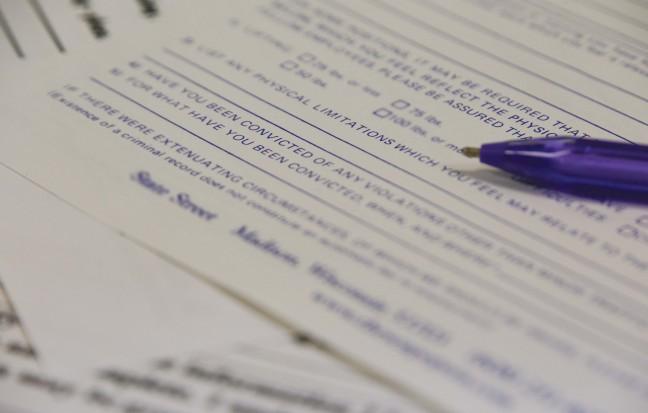Inmates of the Oakhill Correctional Institution can now take advantage of various services provided by the Job Center of Wisconsin. By use of computers with limited internet access, inmates have the opportunity to build resumes, apply for jobs and schedule interviews so they can rejoin the workforce immediately following release. This type of reentry program, successful in states like California, allow for inmates to better adjust to life after incarceration. The Job Center assists users with how to build a resume, how to explore existing skills and how to find employers in an array of fields, including agriculture, finance, manufacturing and trucking.
The Job Center is helpful in the sense that inmates can actively search for jobs while still remaining in prison. Prisoners historically struggle with attaining a job post-incarceration, but the center better helps current convicts ensure a job after being released. In Oct. 2018, Wisconsin’s unemployment rate was 3 percent. As a consequence, there are more openings for jobs than people to fill them, so more job centers in Wisconsin prisons make sense to fill this need.
Oakhill’s focus on rehabilitation and reintegration outshines many other incarceration systems. Lt. Gov. Rebecca Kleefisch claims this center helps the Department of Corrections truly live up to its name. “… Our folks should not be coming to punishment department but a corrections department, where there is an opportunity to learn, to grow your skills and to return to the communities from which they came…” Kleefisch said in an interview with Wisconsin Public Radio.
While the Oakhill Correctional Institution is progressive in that fact, the same cannot be said for other Wisconsin prisons. Take the crisis at Waupun State Prison, for example. From 2014 to 2017, the Wisconsin Center for Investigative Journalism chronicled multiple allegations of abuse by prison guards, the high rates of solitary confinement, inmate hunger strikes and all the negative mental health effects associated with them — and this is just for the Waupun State Prison. The crisis surrounding the Lincoln Hills correctional facility has been brewing since 2010, and though it will close in 2019, the closure is only a small push towards reform for Wisconsin’s correctional system.
Systems like that in Waupun are completely destructive for inmates. Their methodology is centered around punishment, which only worsens a prisoner’s mental health. When released, the prisoners may not have the mental stability to secure and keep a job.
In contrast, Oakhill’s program is changing prisoners’ lives for the better. Their job center is a forward-looking movement in the betterment of prison conditions. What is so shocking, however, is that there is such a steep contrast between correctional facilities in one state. As long as places like Waupun continue to ignore and worsen the well-being of inmates, one can hardly say there is an overall progressive shift in Wisconsin’s prisons.
Prisons are not meant to be havens, but everyone deserves to live in an environment that promotes safety and well-being, regardless of criminal activity. Places like Oakhill Correctional Institution are certainly making strides in a positive direction. Instead of isolation, punishment and complete detachment from the outside world, the facility is focusing on inmates’ rehabilitation into being productive members of society. The Job Center makes Oakhill’s case “… one of heart, one of investment in your fellow man, one of second chances,” Kleefisch said. The Oakhill Correctional Institution is well worth praising. The same can not be said for other prisons in Wisconsin.
Keagan Schlosser (kschlosser2@wisc.edu) is a freshman majoring in communications.


